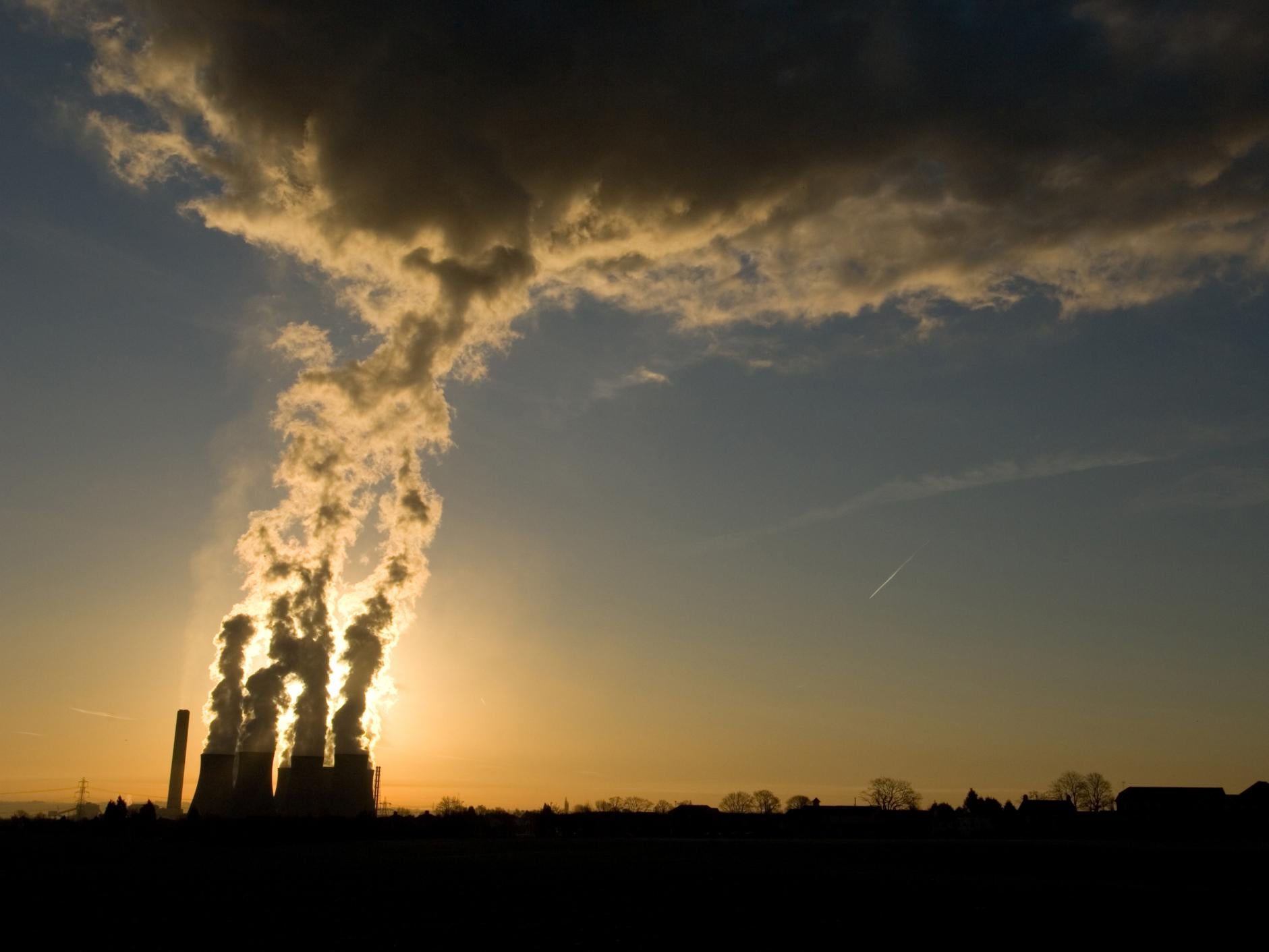Carbon emissions hit record high in 2017 due to rising energy demand
Figures show 'current efforts to combat climate change are far from sufficient', say report's authors

Your support helps us to tell the story
From reproductive rights to climate change to Big Tech, The Independent is on the ground when the story is developing. Whether it's investigating the financials of Elon Musk's pro-Trump PAC or producing our latest documentary, 'The A Word', which shines a light on the American women fighting for reproductive rights, we know how important it is to parse out the facts from the messaging.
At such a critical moment in US history, we need reporters on the ground. Your donation allows us to keep sending journalists to speak to both sides of the story.
The Independent is trusted by Americans across the entire political spectrum. And unlike many other quality news outlets, we choose not to lock Americans out of our reporting and analysis with paywalls. We believe quality journalism should be available to everyone, paid for by those who can afford it.
Your support makes all the difference.Carbon emissions reached a historic high in 2017 according to a new report by a major intergovernmental organisation.
Figures released by the International Energy Agency show higher energy demands and a slowing of energy efficiency improvements were responsible for the emissions up tick.
After three years of flat lining, carbon dioxide levels around the world increased in 2017 by 1.4 per cent to 32.5 gigatonnes.
The increase stands in stark contrast to the demands of the Paris climate agreement, which calls for drastic cuts in global emissions if the world is to meet its ambitious targets.
Under the 2015 agreement, nations agreed to limit the increase in global temperatures to no more than 2C above pre-industrial times.
“The robust global economy pushed up energy demand last year, which was mostly met by fossil fuels, while renewables made impressive strides,” said Dr Fatih Birol, the agency’s executive director.
India and China accounted for 70 per cent of the global increase in energy demand, while several major economies actually saw dips in their emissions levels – including the UK, Mexico and Japan.
Notably, the US saw the biggest drop in carbon dioxide emissions.
Though Donald Trump has now announced his intention to withdraw the US from the Paris climate agreement, the nation has increased implementation of renewable energy in recent years.
Emissions in the US have also dropped due to a switch from coal to gas that has taken place across the country.
At a global level, while the majority of energy demand growth was met by fossil fuels, renewable energy still had the highest growth rate of any fuel.
Despite these successes, the International Energy Agency said their new figures are evidence not enough is being done to combat climate change on a global scale.
“The significant growth in global energy-related carbon dioxide emissions in 2017 tells us that current efforts to combat climate change are far from sufficient,” said Dr Birol.
“For example, there has been a dramatic slowdown in the rate of improvement in global energy efficiency as policy makers have put less focus in this area.”
In the three years prior to 2017, energy efficiency improvements were being made at a rate of 2.3 per cent, whereas last year this slowed down to 1.7 per cent.
Join our commenting forum
Join thought-provoking conversations, follow other Independent readers and see their replies
Comments